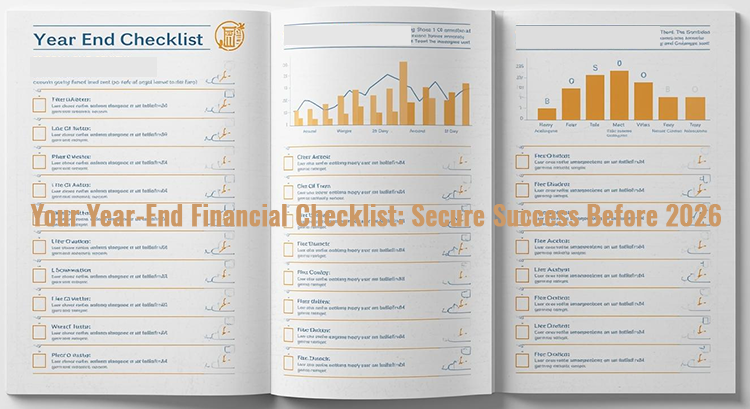
As November draws to a close, it’s the perfect moment to take a proactive look at your finances before the year wraps up. In this article, you’ll find straightforward strategies to help you revisit your investment goals, check in on your savings, and get a handle on any lingering debt—all before the holiday rush begins.
Before the holiday distractions take over, start with a simple checklist. Take a fresh look at your budget—have your expenses changed lately? Review how your investments have performed this year, and consider rebalancing if things are out of sync. If you can, try to maximize your retirement contributions before the deadlines hit—every dollar you add now could make a big difference down the road. If you’re carrying debt, focus on paying down accounts with high interest rates to save money in the long run. And don’t forget: if you’ve had some losses in the market this year, you might be able to use them to offset gains and reduce your 2025 tax bill.
Keep in mind, many important tax moves need to happen before December 31st. Consider boosting your 401(k) or health savings account contributions, making charitable donations, or converting retirement accounts while the rules are still in your favor. Also, check whether you qualify for tax credits—such as those for energy-efficient home upgrades or education expenses—as they can really add up.
Taking action now means less stress during the holidays and sets you up for a confident, fresh start in 2026. And, as always, it’s a good idea to check in with a financial advisor or tax professional to ensure these steps are the right fit for you.
Sources:
- JPMorgan: https://privatebank.jpmorgan.com/gl/en/insights/taxes/5-year-end-tax-planning-actions-to-take-before-2026
- InsuranceNewsNet: https://insurancenewsnet.com
- CPA Practice Advisor: https://www.cpapracticeadvisor.com/2025/11/11/year-end-tax-and-financial-planning-tips-from-cpas
- Kiplinger: https://www.kiplinger.com/taxes/charitable-donations/ways-high-income-earners-can-maximize-their-charitable-donations
- Securian: https://www.securian.com/insights-tools/personal-finance/year-end-financial-checklist.html
- Income Lab: https://www.incomelaboratory.com/year-end-financial-planning-checklist-advisors
- Charles Schwab: https://www.schwab.com/learn/story/tax-saving-moves-you-can-make-before-year-end
- Ameriprise: https://www.ameriprise.com/financial-goals-priorities/year-end-financial-checklist
- Wealth Enhancement Group: https://www.wealthenhancement.com/blog/7-tax-moves-to-consider-before-the-end-of-the-year
- Edward Jones: https://www.edwardjones.com/us-en/market-news-insights/financial-strategy/2025-year-end-checklist
- Vanguard: https://advisors.vanguard.com/resources/year-end-planning-checklist
Disclosure
The information provided in this article is for general informational and educational purposes only, and should not be construed as personalized investment, tax, legal, or financial advice. The views expressed are those of the sources cited and do not constitute the official position or recommendation of any government agency or regulatory authority, including the U.S. Securities and Exchange Commission (SEC).
Neither the author nor the publisher is recommending or endorsing any specific investments, securities, or strategies discussed herein. Investing involves risk, including the possible loss of principal. Past performance is no guarantee of future results.
Before making any financial, investment, or tax decisions, readers are strongly encouraged to consult a qualified financial advisor, tax professional, or attorney, and to consider their own financial circumstances and objectives. The article may reference third-party websites or content; such references are provided for convenience and informational purposes only, and do not constitute an endorsement or validation of their content.












